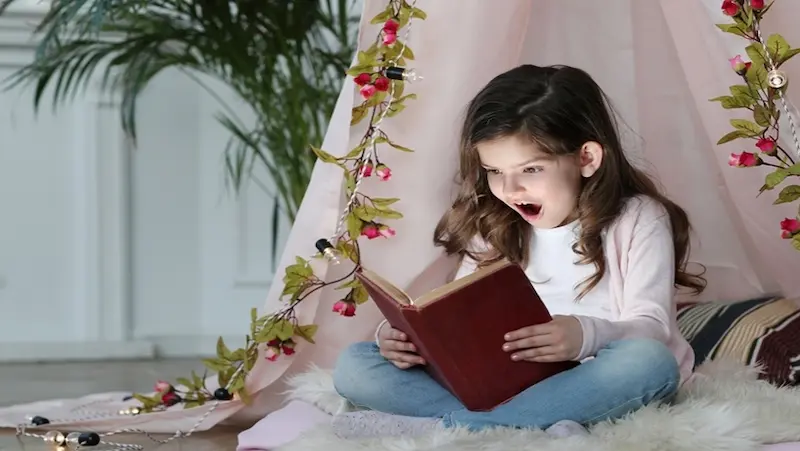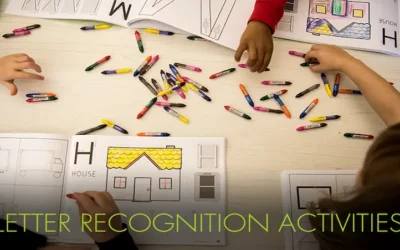Tongue twisters are not only a source of laughter and amusement, but they can also be a valuable tool for improving pronunciation skills, especially for kids. These fun and challenging phrases consist of a sequence of words that are difficult to articulate quickly and correctly. They require precise control of the tongue and lips, making them an excellent exercise for speech development. Let’s explore the benefits of tongue twisters for kids and some popular examples to get the laughter rolling!

Table of contents
Introduction
One of the primary advantages of tongue twisters is their ability to enhance speech clarity and pronunciation. When kids practice saying tongue twisters, they train their mouth muscles to move in specific ways, promoting better articulation and enunciation. By repeatedly attempting to say tricky phrases, children become more conscious of the movements of their tongues and lips, thus improving their overall speech clarity.
Benefits of Tongue Twisters for Kids
Tongue twisters are a fun and challenging way for kids to improve their pronunciation, vocabulary, and communication skills. They can also help kids develop a sense of humor and improve their memory. Check out Programs for kids.
Improved Pronunciation
Tongue twisters force kids to practice pronouncing difficult sounds and words. This can help them to develop better pronunciation skills. For example, the tongue twister “Peter Piper picked a peck of pickled peppers” helps kids to practice pronouncing the “p” sound, which can be difficult for some children.

Increased Vocabulary
Tongue twisters often contain unusual or uncommon words. This can help kids to expand their vocabulary. For example, the tongue twister “She sells seashells by the seashore” introduces the word “seashells,” which is not a word that most children would encounter on a regular basis.
Improved Communication Skills
Tongue twisters can help kids to develop better communication skills. When kids practice tongue twisters, they are forced to slow down and speak more clearly. This can help them to communicate more effectively in everyday situations. For example, the tongue twister “Black bug bit a big black bear” helps kids to practice pronouncing the “b” sound, which can be difficult for some children to pronounce quickly.
Sense of Humor
Tongue twisters can also help kids to develop a sense of humor. The silly and nonsensical nature of tongue twisters can be a lot of fun for kids. This can help them to develop a positive attitude towards learning and children’s language development.
Improved Memory
Tongue twisters can also help kids to improve their memory. When kids practice tongue twisters, they are forced to remember a series of words and sounds. This can help them to improve their short-term memory and their ability to recall information.
Research
There is some research to support the benefits of tongue twisters for kids. One study found that children who practiced tongue twisters for 10 minutes a day for 2 weeks improved their pronunciation skills significantly more than children who did not practice tongue twisters. Another study found that children who practiced tongue twisters for 15 minutes a day for 3 weeks improved their vocabulary skills significantly more than children who did not practice tongue twisters.
How to Use Tongue Twisters with Kids
Tongue twisters can be used with kids of all ages. However, it is important to choose tongue twisters that are appropriate for the child’s age and level of development. For younger children, it is best to choose tongue twisters that are short and simple. For older children, it is possible to choose more challenging tongue twisters.
It is also important to make sure that kids are having fun when they are practicing tongue twisters. If they are not enjoying themselves, they are less likely to stick with it. One way to make tongue twisters more fun is to turn them into a Children’s game. For example, you could have a contest to see who can say the tongue twister the fastest or the most times without making a mistake.
Tongue twisters can be a fun and beneficial way for kids to improve their pronunciation, vocabulary, communication skills, and sense of humor. With a little practice, kids can become experts at tongue twisters and reap the many benefits that they offer.
Examples of Tongue Twisters for Kids

Here are some examples of tongue twisters for kids, categorized by difficulty level:
Easy Tongue Twisters
- She sees cheese. This tongue twister is easy because it only uses a few different sounds. The “sh” and “ch” sounds are similar, so it can be tricky to say them quickly one after the other.
- She sells seashells by the seashore. This tongue twister is also easy because it uses a lot of short words. The “s” sound is repeated several times, which can make it difficult to say the tongue twister smoothly.
- Red lorry, yellow lorry. This tongue twister is a classic for a reason. It’s short, simple, and fun to say.
Medium Difficulty Tongue Twisters
- Peter Piper picked a peck of pickled peppers. This tongue twister is a bit more challenging because it has a few more syllables than the easy tongue twisters. The “p” and “k” sounds are also similar, so it can be tricky to say them quickly one after the other.
- The thirty-three thieves thought that they thrilled the throne throughout Thursday. This tongue twister is a bit longer and more challenging than the other tongue twisters on this list. It has a lot of different sounds, so it can be tricky to say it smoothly.
- I scream, you scream, we all scream for ice cream! This tongue twister is a fun and silly tongue twister that kids will love. It’s also a bit challenging because it has a lot of the same sounds repeated.
Hard Tongue Twisters
- A sailor went to sea to see what he could see. But all he saw was sea, sea, sea. This tongue twister is hard because it has a lot of the same sounds repeated. The “s” sound is repeated several times, which can make it difficult to say the tongue twister smoothly.
- The sixth sick sheik’s sixth sheep’s sick. This tongue twister is hard because it has a lot of difficult sounds. The “sh” and “s” sounds are repeated several times, which can make it difficult to say the tongue twister smoothly.
- I slit a sheet, a sheet I slit. Upon the slitted sheet I sit. This tongue twister is hard because it has a lot of long words. The “s” sound is also repeated several times, which can make it difficult to say the tongue twister smoothly.
Fun and Engaging Descriptions of Tongue Twisters
Tongue twisters are a fun and engaging way for kids to practice their pronunciation skills. They can also be a great way to get kids laughing and having fun. Here are some fun and engaging descriptions of some of the tongue twisters on this list:
- She sees cheese: This tongue twister is about a girl who sees cheese. It’s a fun and silly tongue twister that kids will love.
- She sells seashells by the seashore: This tongue twister is about a girl who sells seashells by the seashore. It’s a classic tongue twister that’s been around for years.
- Red lorry, yellow lorry: This tongue twister is about two different colored lorries. It’s a fun and simple tongue twister that kids will love.
Intended Pronunciation
The intended pronunciation of tongue twisters is to say them smoothly and quickly. It can be helpful to practice saying the tongue twister slowly at first, and then gradually speed up. It’s also important to relax and have fun when saying tongue twisters. If you get stressed out, it will be more difficult to say them smoothly.
Tips for Practicing Tongue Twisters with Kids

Tongue twisters are a fun and challenging way to improve your child’s speech and language skills. They can help children develop their pronunciation, fluency, and articulation. Tongue twisters can also be a great way to get kids laughing and having fun.
Here are some tips for practicing tongue twisters with kids:
- Make it a game. Turn tongue twisters into a learning games for kids by seeing who can say them the fastest or with the fewest mistakes. You can also make it a contest to see who can come up with the funniest or most creative twist on a tongue twister.
- Practice regularly. The more you practice, the better your child will become at saying tongue twisters. Try to practice for a few minutes each day.
- Provide positive reinforcement. When your child says a tongue twister correctly, be sure to praise them. This will help them stay motivated and keep practicing.
Here are some ideas for incorporating tongue twisters into daily routines:
- During car rides. When you’re on a long car ride, try playing a tongue twister game. This will help keep your kids entertained and engaged.
- At meal times. Say a tongue twister before each meal. This is a great way to get kids excited about eating and to help them develop their language skills.
- Before bed. Say a tongue twister before bed as a way to relax and wind down for the night.
Tongue twisters can be a fun and beneficial way to improve your child’s speech and language skills. By following these tips, you can help your child get the most out of tongue twisters.
Here are some additional tips for practicing tongue twisters with kids:
- Start with simple tongue twisters. There are many different levels of difficulty when it comes to tongue twisters. Start with simple tongue twisters that are easy for your child to say. As they get better, you can gradually move on to more challenging tongue twisters.
- Break down the tongue twister. If your child is having trouble saying a tongue twister, try breaking it down into smaller parts. For example, the tongue twister “Peter Piper picked a peck of pickled peppers” can be broken down into the following parts:
- Peter Piper
- picked a peck
- of pickled peppers
- Practice slowly. When you’re first starting out, it’s important to practice tongue twisters slowly. This will help your child get used to the sounds and movements of the tongue twister. As they get better, they can gradually start to speed up.
- Have fun! Tongue twisters are supposed to be fun. If your child is not having fun, they’re less likely to want to practice. Make sure to keep the practice sessions light and enjoyable.
With a little practice, your child will be saying tongue twisters like a pro in no time!
Conclusion
In conclusion, tongue twisters for kids are not only a source of entertainment but also an effective tool to improve pronunciation skills. These fun and challenging phrases provide an enjoyable way for children to practice their diction, articulation, and clarity. By engaging in the repeated and rapid pronunciation of difficult sounds and combinations, kids can enhance their linguistic abilities and develop better control over their speech.
Tongue twisters offer a playful approach to language learning, encouraging children to overcome pronunciation hurdles while having a great time. So, let the tongue-twisting adventures begin, and watch as your child’s pronunciation skills reach new heights!
To get your hands on more such educational and free resources on coding for kids, robotics courses for kids, game development and Fun Games for Kids, etc., do check out the Brightchamps Page now!
Frequently Asked Questions
Tongue twisters for kids are fun wordplay phrases that are challenging to say quickly and accurately. They can help with speech development by improving pronunciation, articulation, and overall oral motor skills.
Yes, tongue twisters can significantly help your child improve their pronunciation and articulation skills. The repetitive nature of tongue twisters strengthens the muscles involved in speech production and enhances clarity and fluency.
To help your child master tongue twisters, start with simple ones and gradually increase the difficulty level. Encourage them to repeat the tongue twister slowly at first, then gradually increase speed. Breaking the twister into smaller parts can also aid in learning.
Making tongue twister practice more fun and engaging for your child can involve turning it into a game. Create a challenge where they earn points for saying the tongue twister correctly and quickly. You can also use props or incorporate gestures to make it more interactive.
Tongue twisters suitable for young children or beginners include phrases with repetitive sounds like “Peter Piper picked a peck of pickled peppers” or “She sells seashells by the seashore.” These help children practice specific sounds and improve their phonetic skills.


 We are an army of educators and passionate learners from BrightChamps family, committed to providing free learning resources to kids, parents & students.
We are an army of educators and passionate learners from BrightChamps family, committed to providing free learning resources to kids, parents & students.
























